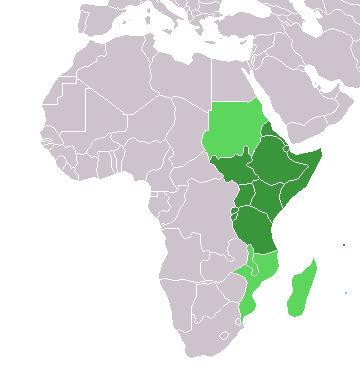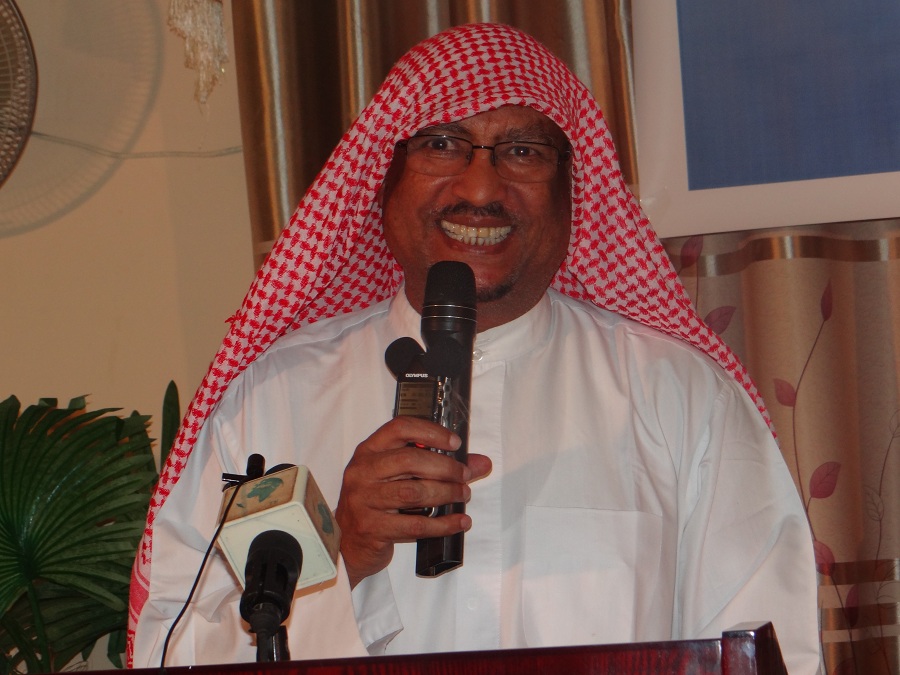|
Politics Of Somaliland
The politics of Somaliland take place within a hybrid system of governance, which, under the Somaliland constitution, combines traditional and western institutions. The constitution separates government into an executive branch, a legislative branch, and a judicial branch, each of which functions independently from the others. History For its first twelve years, Somaliland had no political parties but instead followed more traditional clan-based forms of political organization. Political parties were introduced during the presidential elections and it was hoped that the recent parliamentary elections would help to usher in a representative system without allowing representation to be overtly clan-based. District elections then held determined which parties were allowed to contest the parliamentary and presidential elections, where a party was required to demonstrate at least twenty percent of the popular vote from four out of the six regions. This was designed to ensure that pa ... [...More Info...] [...Related Items...] OR: [Wikipedia] [Google] [Baidu] |
National Emblem Of Somaliland
The national emblem of Somaliland ( so, Astaanta Qaranka Somaliland, ar, شعار أرض الصومال), was introduced on 14 October 1996 along with the flag of Somaliland, when it was approved by the National Conference. It was introduced by Abdullahi Abdi Omar (Jawaan). Having declared its independence on 18 May 1991, the region's self-declared independence remains unrecognised by any country or international organization. Description The emblem consists of an equally balanced scales symbolising justice between the citizens of Somaliland, the coffee-coloured eagle of Saladin holds the scales as a sign of democracy, two hands shaking representing the equality and freedom between the people of Somaliland, an olive branch symbolising peace amongst the people of Somaliland, a yellow background representing the bright, beautiful culture and people of Somaliland. The Islamic calligraphy above the scales reads the '' Bismillah'' which if translated into English means ''In the n ... [...More Info...] [...Related Items...] OR: [Wikipedia] [Google] [Baidu] |
Adan Haji Ali
Adan Haji Ali Ahmed ( so, Aadan Xaaji Cali Axmed) is a Somaliland lawyer and judge, serving as the current Chief Justice of Somaliland. He assumed the position on June 3, 2015, when he was appointed by Ahmed Mohamed Mohamoud. See also *Ministry of Justice (Somaliland) The Ministry of Justice of the Republic Somaliland ( so, Wasaaradda Caddaalada Somaliland) ( ar, وزارة العدل) administers the court system (with the exception of the Supreme Court) and has the authority to hire court personnel, allocat ... * Supreme Court of Somaliland References Chief justices of Somaliland Issa Musa Living people People from Hargeisa Somaliland lawyers Year of birth missing (living people) {{Somaliland-bio-stub ... [...More Info...] [...Related Items...] OR: [Wikipedia] [Google] [Baidu] |
Diaspora
A diaspora ( ) is a population that is scattered across regions which are separate from its geographic place of origin. Historically, the word was used first in reference to the dispersion of Greeks in the Hellenic world, and later Jews after the Babylonian exile. The word "diaspora" is used today in reference to people who identify with a specific geographic location, but currently reside elsewhere. Examples of notably large diasporic populations are the Assyrian–Chaldean–Syriac diaspora, which originated during and after the early Arab-Muslim conquests and continued to grow in the aftermath of the Assyrian genocide; the southern Chinese and Indians who left their homelands during the 19th and 20th centuries; the Irish diaspora that came into existence both during and after the Great Famine; the Scottish diaspora that developed on a large scale after the Highland Clearances and Lowland Clearances; the nomadic Romani population from the Indian subcontinent; the Ita ... [...More Info...] [...Related Items...] OR: [Wikipedia] [Google] [Baidu] |
East Africa
East Africa, Eastern Africa, or East of Africa, is the eastern subregion of the African continent. In the United Nations Statistics Division scheme of geographic regions, 10-11-(16*) territories make up Eastern Africa: Due to the historical Omani Empire and colonial territories of the British East Africa Protectorate and German East Africa, the term ''East Africa'' is often (especially in the English language) used to specifically refer to the area now comprising the three countries of Kenya, Tanzania, and Uganda. However, this has never been the convention in many other languages, where the term generally had a wider, strictly geographic context and therefore typically included Djibouti, Eritrea, Ethiopia, and Somalia.Somaliland is not included in the United Nations geoscheme, as it is internationally recognized as a part of Somalia. *Tanzania, Kenya, Uganda, Rwanda, Burundi, Democratic Republic of Congo and South Sudan are members of the East African Community. The firs ... [...More Info...] [...Related Items...] OR: [Wikipedia] [Google] [Baidu] |
The Economist
''The Economist'' is a British weekly newspaper printed in demitab format and published digitally. It focuses on current affairs, international business, politics, technology, and culture. Based in London, the newspaper is owned by The Economist Group, with its core editorial offices in the United States, as well as across major cities in continental Europe, Asia, and the Middle East. In 2019, its average global print circulation was over 909,476; this, combined with its digital presence, runs to over 1.6 million. Across its social media platforms, it reaches an audience of 35 million, as of 2016. The newspaper has a prominent focus on data journalism and interpretive analysis over original reporting, to both criticism and acclaim. Founded in 1843, ''The Economist'' was first circulated by Scottish economist James Wilson to muster support for abolishing the British Corn Laws (1815–1846), a system of import tariffs. Over time, the newspaper's coverage expanded further into ... [...More Info...] [...Related Items...] OR: [Wikipedia] [Google] [Baidu] |
Borama
Borama ( so, Boorama, ar, بورما) is the Second capital city of Somaliland and the largest city of the northwestern Awdal region of Somaliland The commercial seat of the province, it is situated near the border with Ethiopia. During the Middle Ages, Borama was ruled by the Adal Sultanate. It later formed a part of the British Somaliland protectorate in the first half of the 20th century. According to the UNDP in 2014, the city had a population of around 398,609 making it one of the largest cities inside Somaliland. It has been a leading example in community organizing, having been the first area in Somaliland to adopt a self-help scheme in the wake of the civil war. History As with several nearby towns such as Amud, numerous archaeological finds have been discovered in the Borama area that point to an eventful past. The latter include ancient remains of tombs, houses and mosques, in addition to sherds of Oriental wares, particularly China, Chinese porcelain. The artefact ... [...More Info...] [...Related Items...] OR: [Wikipedia] [Google] [Baidu] |
Dahir Riyale Kahin
Dahir Riyale Kahin ( so, Daahir Riyaale Kaahin, ar, ظاهر ريالي كاهن) (born 12 March 1952) is a Somaliland politician who was President of Somaliland from 2002 to 2010. He previously served as a senior officer in the National Security Service in Somalia, and he was Vice President of Somaliland from 1997 to 2002. Personal life Kahin was born in the town of Quljeed, situated in the northwestern Awdal region of Somaliland. He hails from the Jibreel Younis sub-clan of the Gadabuursi clan. He was educated in Amoud, and was later trained in Mogadishu. Career Early career Kahin's previous posts included a diplomatic position at the Somali Embassy in Djibouti. In the last years of the Siad Barre government, during the 1980s, Kahin was the highest-ranking National Security Service (NSS) officer in Berbera.Human Rights Watch (Organization), Chris Albin-Lackey, ''Hostages to peace: threats to human rights and democracy in Somaliland'', (Human Rights Watch: 2009), p.13. He ... [...More Info...] [...Related Items...] OR: [Wikipedia] [Google] [Baidu] |
Ballot Stuffing
Electoral fraud, sometimes referred to as election manipulation, voter fraud or vote rigging, involves illegal interference with the process of an election, either by increasing the vote share of a favored candidate, depressing the vote share of rival candidates, or both. It differs from but often goes hand-in-hand with voter suppression. What exactly constitutes electoral fraud varies from country to country. Electoral legislation outlaws many kinds of election fraud, * also at but other practices violate general laws, such as those banning assault, harassment or libel. Although technically the term "electoral fraud" covers only those acts which are illegal, the term is sometimes used to describe acts which are legal, but considered morally unacceptable, outside the spirit of an election or in violation of the principles of democracy. Show elections, featuring only one candidate, are sometimes classified as electoral fraud, although they may comply with the law and are presente ... [...More Info...] [...Related Items...] OR: [Wikipedia] [Google] [Baidu] |
UCID
The Justice and Welfare Party ( so, Ururka Caddaalada iyo Daryeelka, UCID; ar, حزب العدالة والتنمية), sometimes translated as the Justice and Welfare Association, is the oldest political party in Somaliland. The party tends to be supported by people from the Garhajis clan and some sub-clans of the Dir. UCID was founded in 2001 by Somaliland politician Faysal Ali Warabe, with its program being inspired by that of the Finnish Social Democratic Party. Mr. Waraabe also serves as its Chairman. The party has been described as the only one at a national level to adhere to a specific political ideology. Based in Hargeisa, the political party came in third place during the 2003 Somaliland presidential election, receiving 16% of the votes. In the parliamentary elections held on 29 September 2005, the party won 26.9% of the vote and 21 out of 82 seats. Electoral history Presidential elections Parliamentary elections Local elections See also * Somaliland ... [...More Info...] [...Related Items...] OR: [Wikipedia] [Google] [Baidu] |
Kulmiye
The Kulmiye Peace, Unity and Development Party ( so, Xisbiga Kulmiye Nabad, Midnimo iyo Horumarka; ar, حزب التضامن), also known as simply Kulmiye (), is a political party in Somaliland. The party was founded by Ahmed Mohamed Mohamoud "Silanyo" in May 2002, ahead of the first municipal elections later that year. The party is mainly supported by people from the Habr Je'lo, Habr Awal and Darod clans. In the presidential elections of 14 April 2003, its candidate Ahmed Mohamed Mohamoud "Silanyo" won 42.1% of the popular vote. He was narrowly defeated by Dahir Riyale Kahin. In parliamentary elections held on 29 September 2005, the party won 34.1% of the vote and 28 out of 82 seats. In the 2010 presidential election, Silanyo and his running mate Abdirahman Saylici claimed victory and comfortably defeated Kahin. In the 2017 presidential election, President Silanyo chose not to seek a second term in office. Muse Bihi Abdi, who became party Chairman in 2015 and his runnin ... [...More Info...] [...Related Items...] OR: [Wikipedia] [Google] [Baidu] |
.jpg)
_who_introduced_Somaliland_national_emblem.jpg)





